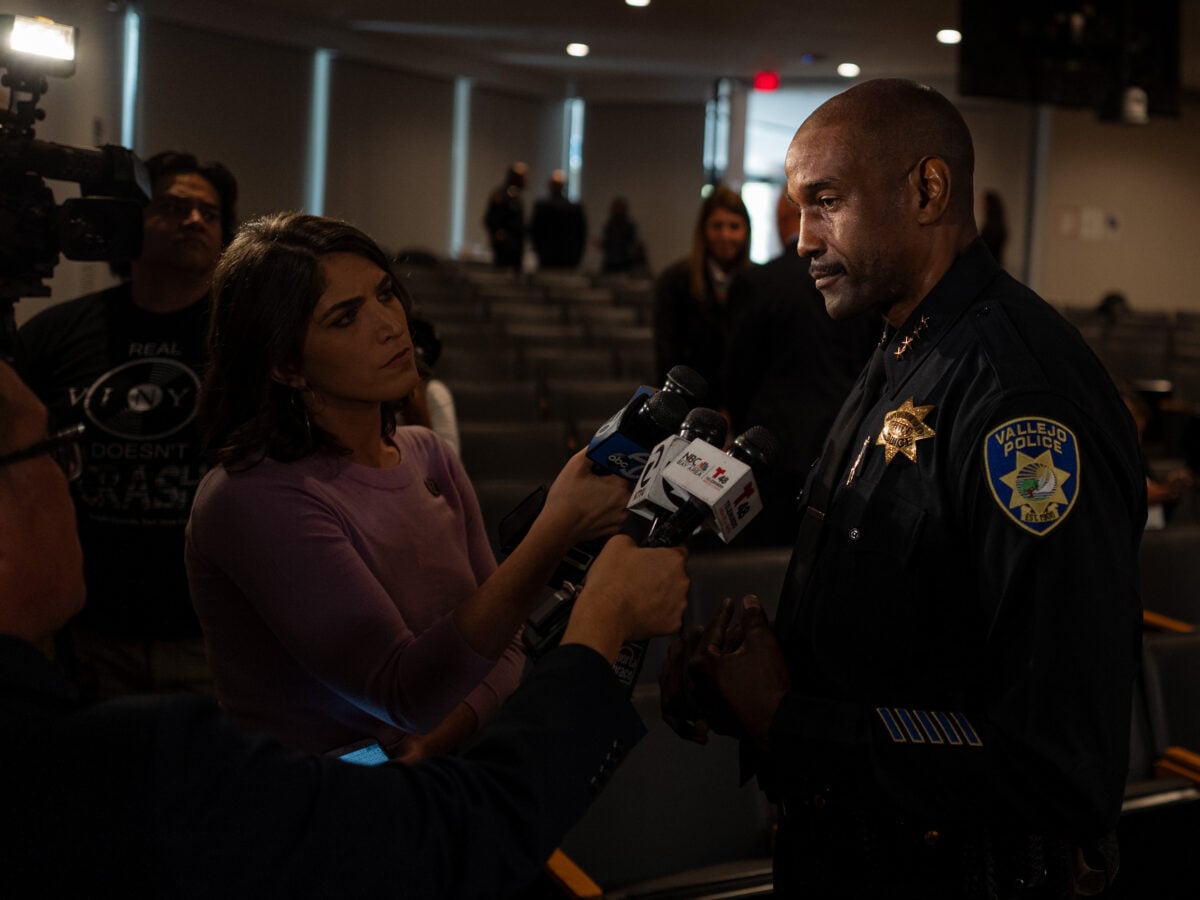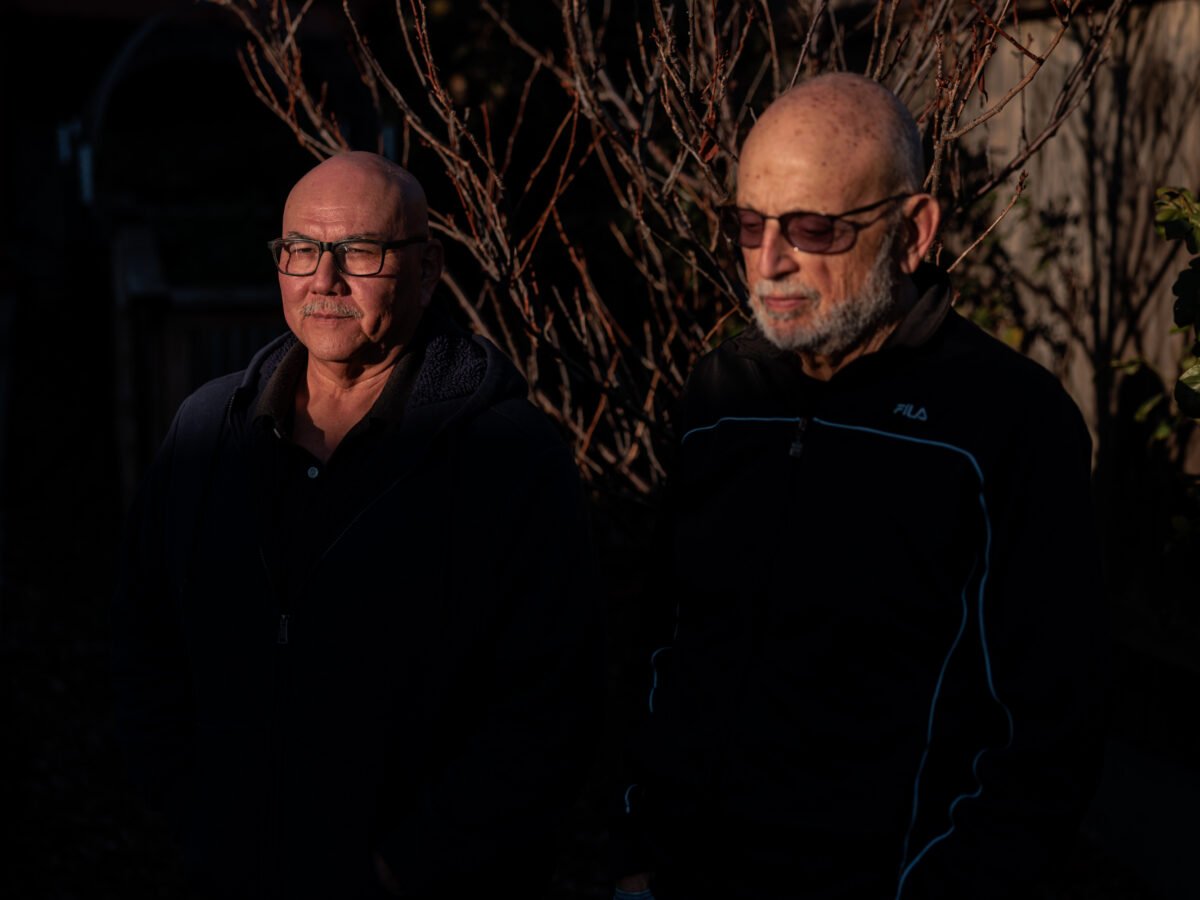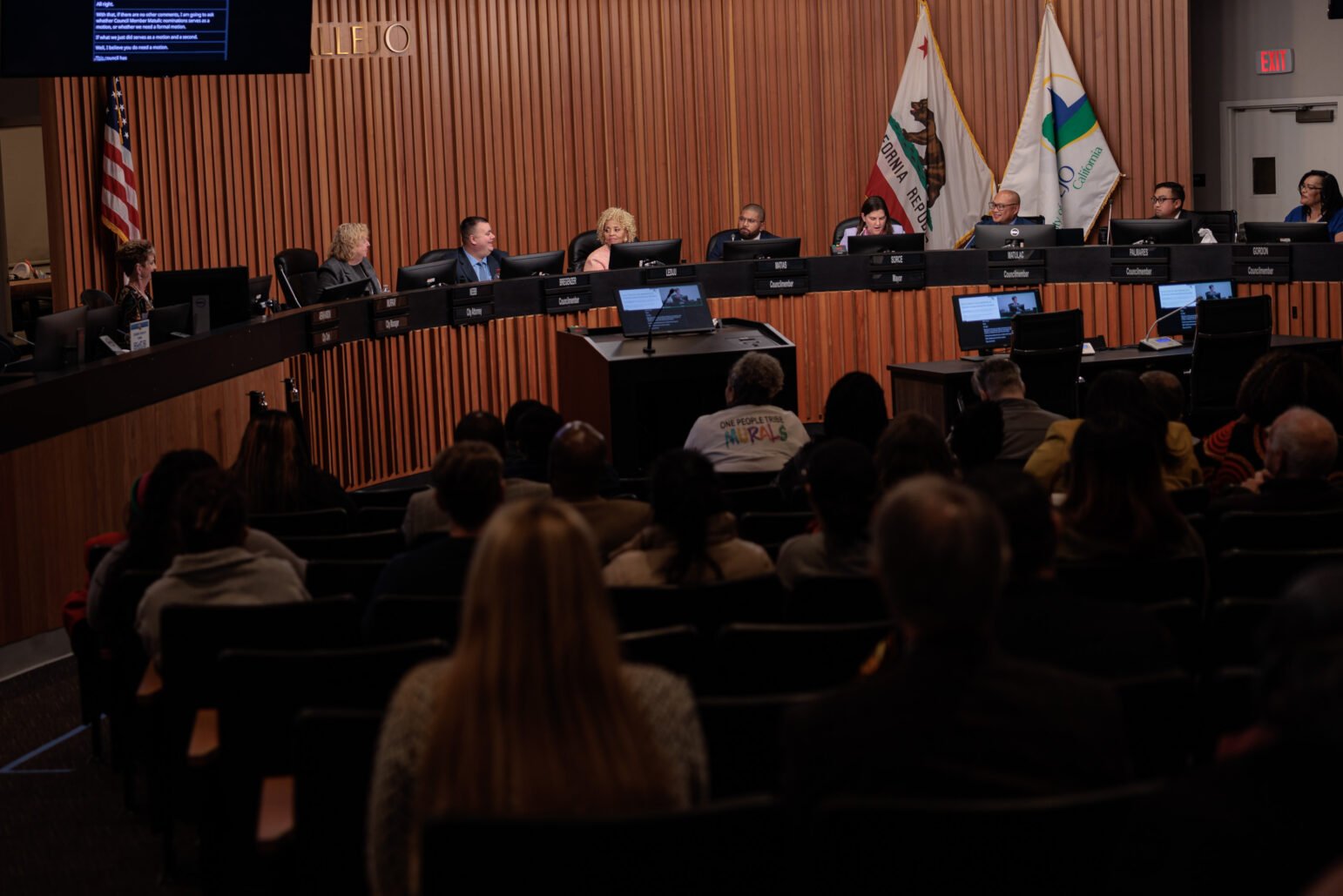
The city of Vallejo is asking the California Supreme Court to review a recent appellate court decision to release the police department’s investigation into police bending their badges to mark fatal shootings, according to court records.
The request, filed Thursday with authorization from the Vallejo City Council, is in response to a recent victory by the American Civil Liberties Union of Northern California in a public records lawsuit in the First District Court of Appeal.
The city commissioned the third-party investigation into badge bending weeks after Open Vallejo revealed the practice in July 2020. Vallejo, which has long refused to disclose the investigation or its findings, largely prevailed in the case when Solano County Superior Court Judge Stephen Gizzi largely sided with the city in a ruling last October. The Court of Appeal overruled Gizzi on June 27, ordering the release of the investigative report and underlying materials.
“By seeking to overturn the ruling, city leaders are sending the message that they would rather keep residents in the dark about a scandal that has further undermined trust in the police department than support transparency and accountability,” ACLU of Northern California senior staff attorney Emi Young wrote in a statement to Open Vallejo.
City spokesperson Robert Briseño did not respond to a request for comment.
Open Vallejo submitted two friend-of-the-court briefs in support of the ACLU’s lawsuit at the Court of Appeal. This newsroom also seeks the investigative report in a separate lawsuit against the Solano County District Attorney’s Office, in a case before Judge Gizzi. The state supreme court has discretion whether to grant the city’s petition for review or leave the appellate court’s ruling standing.
A 2019 law, Senate Bill 1421, requires agencies to disclose a broad range of records “relating to” police shootings, uses of force resulting in death or great bodily injury, and sustained findings of certain types of officer misconduct.
The city’s petition asks the California Supreme Court to weigh in on whether the records are nonetheless protected from disclosure because they are police personnel records. The petition argues that the independent investigation into badge-bending did not meet the Senate Bill 1421’s “relating to” standard, as it focused on the tradition itself and not individual shootings. As Open Vallejo reported in its original investigation, which was later confirmed by officers’ sworn testimony, officers only became eligible for a bend by participating in a shooting.
The First District Court of Appeal unanimously rejected the city’s argument in its June 27 ruling, holding that the Legislature intended for the law to be read with “the broadest possible meaning and to encompass the records sought in this case.”
“We conclude the documents sought are not confidential personnel records, but instead personnel records that are now subject to public disclosure,” the court held.
Whether badge-bending relates to police shootings is a question answered by the investigation itself, the court noted.
“The investigator found the alleged practice of badge bending had, indeed, occurred and ‘related to the officer’s action of firing a weapon in a critical incident,’” Associate Justice Kathleen M. Banke wrote for the unanimous panel, quoting the 167-page investigative report.
“Whether or not the investigative report resulted in individual discipline is immaterial,” the court continued. “The police department treated the investigation into badge bending as an internal affairs investigation, notified specific officers they were being investigated for possible violations of several department policies, including its policy pertaining to use of force, and the independent investigator made findings as to whether these officers violated those policies.”
“From the beginning, the central question in this case was straightforward, is the badge-bending report related to an investigation into Vallejo police shootings and therefore subject to disclosure under the law?” the ACLU’s Young said. “The court unequivocally agreed that it is.”
‘Grave allegations’
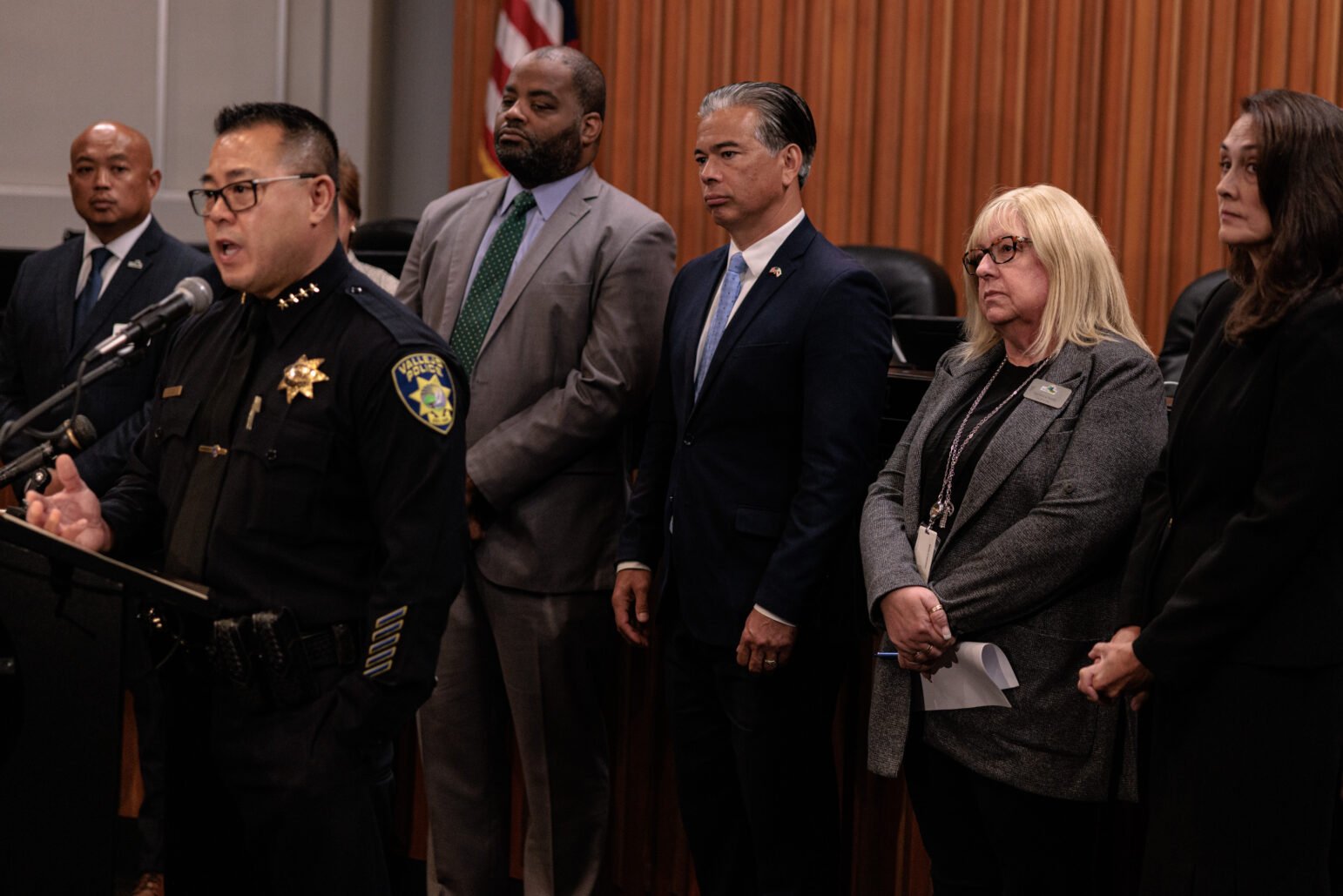
The Vallejo City Council authorized the city attorney to pursue the badge-bending appeal in a recent closed session, although it was not immediately clear from public records when the vote occurred. On Friday, Open Vallejo submitted a public records request seeking more information about the meeting, including a tally of individual council members’ votes on whether to seek state Supreme Court review. The city denied the request within an hour, citing attorney-client privilege.
Reached by phone Friday, Councilmember Alexander Matias declined to comment on the council’s decision to authorize an appeal to the high court. He told Open Vallejo that he could not recall when a decision was made on the petition and declined to say how he voted. When asked whether he believed the badge-bending report should be public, Matias declined to comment.
“If that process changes and is agreed to by the entire body I serve with, then I am more than happy to comply with whatever we agree upon as a group,” Matias said.
Councilmember Charles Palmares also declined to comment, citing the closed session, and further declined to comment on whether he believed the report should be public.
Mayor Andrea Sorce and Councilmembers Peter Bregenzer, Tonia Lediju, Helen-Marie Gordon and J.R. Matulac did not respond to a request for comment prior to publication of this article.
Sorce clarified her position in a text message following publication.
“I fully support the release of the badge bending report,” Sorce told Open Vallejo.
Last week, the ACLU of Northern California called on the Vallejo City Council to launch an independent investigation into the Vallejo City Attorney’s Office. The advocacy organization cited years of controversies that it alleges violate the city’s charter and may include criminal violations.
In a letter published Thursday, the ACLU cited the office’s role in illegally destroying evidence in police shootings, recent testimony alleging that the city systematically defied court orders to produce officer misconduct files, allegedly ignoring racist threats directed at the city’s first Black police chief, and the delayed implementation of the city’s police oversight commission as cause for investigation.
The city attorney’s office denied wrongdoing in a statement to Open Vallejo Monday.
“The ACLU’s letter contains numerous statements and allegations relating to the City Attorney’s Office which are not factual,” the statement reads. “The City Attorney’s Office continues to be committed to serving the City of Vallejo with the utmost honesty and integrity.”
In its seven-page letter to the city council, the ACLU noted that Mayor Sorce recently called for an independent investigation into unspecified allegations of misconduct within the city government.
“Reports that the Vallejo City Attorney’s Office has conspired to conceal, allow, and enable such police misconduct have undermined public trust,” ACLU of Northern California senior staff attorney Alyssa Victory wrote in a Thursday statement.
“To preserve the integrity of the city government and its ongoing attempts to reform the Vallejo Police Department, city leaders must immediately authorize an independent investigation of these grave allegations.”
This article has been updated to reflect additional comment from Vallejo City Attorney Veronica Nebb and Mayor Andrea Sorce.
